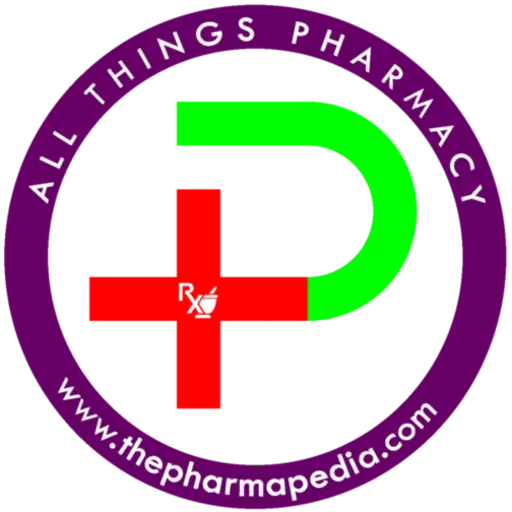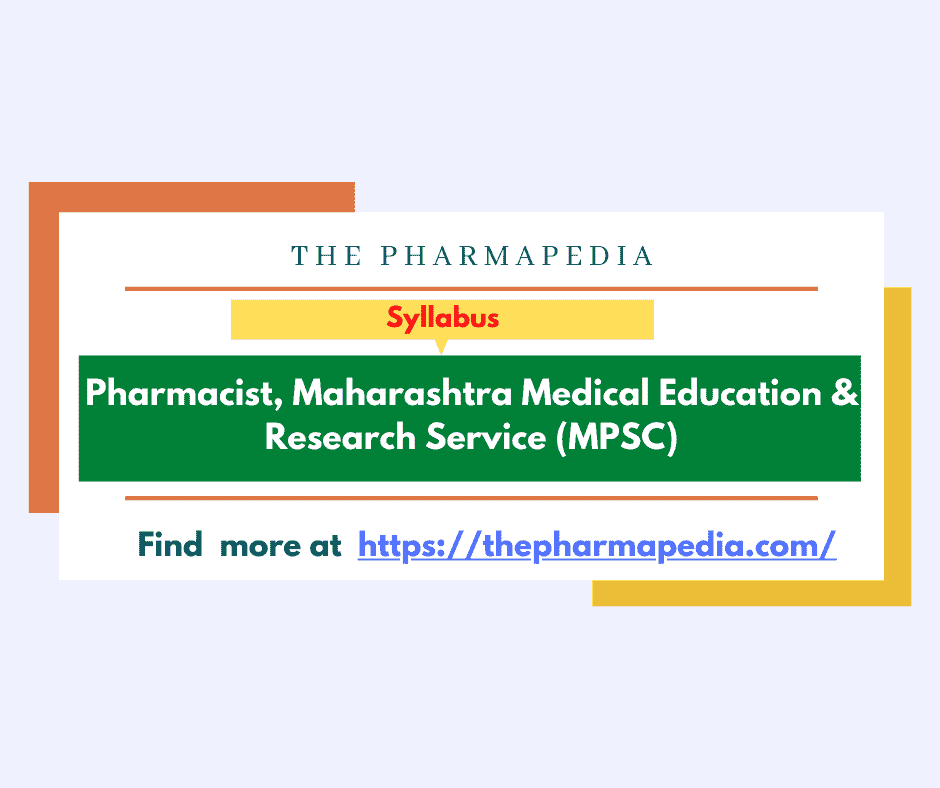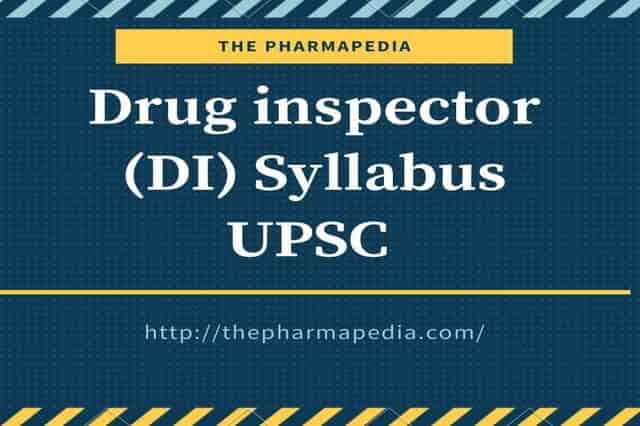Syllabus for the post of Pharmacist consist-
- Standard : Degree
- Total Marks : 100
- Medium : English No. of Question : 100
- Nature of Paper : Objective Type Duration : One Hour
Part I : Pharmaceutics, Dispensing and Hospital Pharmacy
- Formulations: Types, Preparation, Packaging, labeling and Storage, Various Conventional and prolonged release drug delivery systems, per-oral and parenteral administration, novel routes of drug administration including pulmonary, nasal, ophthalmic, transdermal etc., concepts of drugs stability and Shelf-life.
- Prescription : definition, various parts of prescription, their functions, handling of prescription, prescription charging policy, labeling requirements as per various schedules mentioned in Drugs and Cosmetics Act and its addendum, Pharmacy Act 1948, Drug Price Control Order as per regulatory requirements, Narcotic & Psychotropic substances act and Rules.
- Posology : Definition, factors affecting dose selection, Calculation of doses for paediatric and geriatric patients.
- Study of various pharmacopoeias, monographs and various quality control tests mentioned in the monographs- I.P., U.S.P., E.P., B.P.
- Sterile Products –their manufacturing and quality Control, Methods of Sterlization and validation thereof, Test for Sterility, Test for pyrogens, concept of asepsis
and maintenance of aseptic conditions, Central Sterile Supply Department (CSSD) and its functioning.
Microbiological Media : Preparation and Sterilization.
Surgical dressings : Properties, sterilization, standards and tests for sterility.
Ligatures and Sutures : Absorbable and non-absorbable, preparations, standards,and tests for sterility. - Hospital and Drug Store : Layout, designs. staff, materials-coding and stocking including storage conditions. Legal requirements, maintenance of various registers. Use of Computers for day to day record keeping. Inventory control concept of EOQ (Economic Order Quantity ) & Purchase policy. Drug distribution systems in hospitals- Dispensing to in-patients & out-patients. Safe use of drugs in hospitals.
- Clinical Pharmacy – Drug & poison information services & its management: Patient Counseling, Patient information leaflets, patient medication adherence, drug-drug, drug-food interactions, adverse drug reactions. Use of softwares and databases for monitoring drug interactions, and adverse drug reactions and idiosyncratic reactions.
Part II : Pharmacology and Toxicology
- Concepts of health and disease, causative agents and prevention of diseases like Aids, Tuberculosis. Brief outline of communicable diseases, models of transmission and prevention.
- First aid, emergency treatment of shock, snake bites, burns, poisoning, fractures.
- Pharmacology of following classes of drugs
Antihypertensives, antianginal agents, antihyperlipidemic agents, Cardiotonics, antiallergics, antidiabetics, antimicrobials and antibiotics including the newer generation antibiotics, antiulcer agents, antacid, anti HIV agents, antidepressants.
Clinical toxicology:
Clinical symptoms and management of acute poisoning due to pesticides, opiates, barbiturates, benzodiazepines, alcohol (ethanol & methanol), paracetamol and salicylates, heavy metals- Aresenic, lead, mercury, radiation poisoning.
Join Our WhatsApp Group to receive the latest updates like Pharma Job notifications, study materials, admission alerts, Pharma News, etc
Join Our Telegram Group to receive the latest updates like Pharma Job notifications, study materials, admission alerts, Pharma News, etc
Join Our Telegram Group to Download Free Books & Notes, Previous papers for D.Pharm, B.Pharm, M.Pharm, Drug Inspector & GPAT……….



